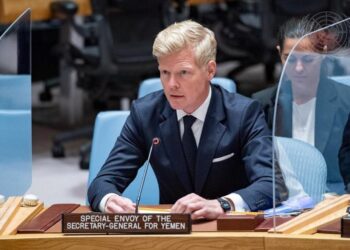Netanyahu said this Wednesday that the Saudi Arabia-Iran restoration of ties is not what it sounds like and the two countries agreed only on finding ways to end the Yemen war.
In an interview with the CNBC news channel, Israel Prime Minister Benjamin Netanyahu denied any sort of anxiety or worry about the recent historical restoration of ties between Saudi Arabia and Iran.
He said that Saudi Arabia’s decision to resume diplomatic relations with Iran had “very little” to do with Israel and was mainly about finding ways to de-escalate tensions in the regions, particularly in Yemen.
“Saudi Arabia, the leadership there, has no illusions about who their adversaries are and who their friends are in the Middle East. They understand that Israel is an indispensable partner for the Arab world in achieving security, prosperity, and peace,” Netanyahu said.
Labeling Iran as the source of much of the troubles in the region, Netanyahu said, “ninety-five percent of the problems in the Middle East emanate from Iran — terrorism, aggression, many subversions”, adding also that countries like Yemen, Syria, and Lebanon, who “partner with Iran, partner with misery.”
Netanyahu then asserted that the bonds that have been created between Saudi Arabia and Israel are strong and will get even stronger. He reiterated his belief that peace with Saudi Arabia would end the larger Arab-Israeli conflict, although he conceded it would not immediately solve the conflict with the Palestinians. “Riyadh is very aware of the benefits of partnering with Israel. We have done enormously well alone, but we can do a lot better together,” Netanyahu said.
Netanyahu’s Foreign Minister echoes the same optimism
Repeating the illusion optimism of Netanyahu, Israel’s Foreign Minister Eli Cohen also noted in a radio speech this week that Saudi rapprochement with the Islamic Republic could be a precursor to ties with Israel and said he was hopeful he would visit Riyadh in the near future to extend bilateral ties with the oil-rich country.
“It is exactly these things that could lead to a balancing act of [Riyadh] moving closer to Israel,” he told Army Radio, adding that a visit to Saudi Arabia “was on the table,” but there was no date yet set. Cohen even announced that at least one more Arab state would join the Abraham Accords within the year, but gave no further details about which country it would be. Cohen is currently visiting Azerbaijan and Turkmenistan, both neighbors of Iran, to further extend influence in these countries.
Netanyahu has to face the reality of the Saudi-Arabia-Iran rapprochement
Despite his sense of denial that Riyadh-Tehran restoration of ties is limited only to ending the Yemen war and has nothing to do with the Kingdom’s relations with Israel, Netanyahu was surprised when asked why Riyadh was also restoring ties with Syria and hosting leaders of the Hamas group and the Palestinian Authority.
In response, the Israeli Prime Minister claimed that those moves were meant to send them a message ahead of a possible peace deal with Israel. “Maybe to tell them they are going to have to prepare themselves — maybe to try to tell them to stop doing the kind of terror they foment,” Netanyahu said.
The reality, however, is different from Netanyahu’s interpretation of Saudi Arabia’s recent foreign policy moves. First of all, Riyadh has repeatedly said that it will not normalize ties with Israel until a peace deal is inked with the Palestinians.
In addition, after the historical deal on March 10, Iran and Saudi Arabia agreed to reopen embassies in Tehran and Riyadh by May 2023. The deal, brokered by China, also included the implementation of a security cooperation agreement signed in 2001 and a 1998 pact to enhance cooperation on trade, investment, technology, and culture. Tehran and Riyadh also affirmed their respect for the “sovereignty of states” and “non-interference in internal affairs.”







